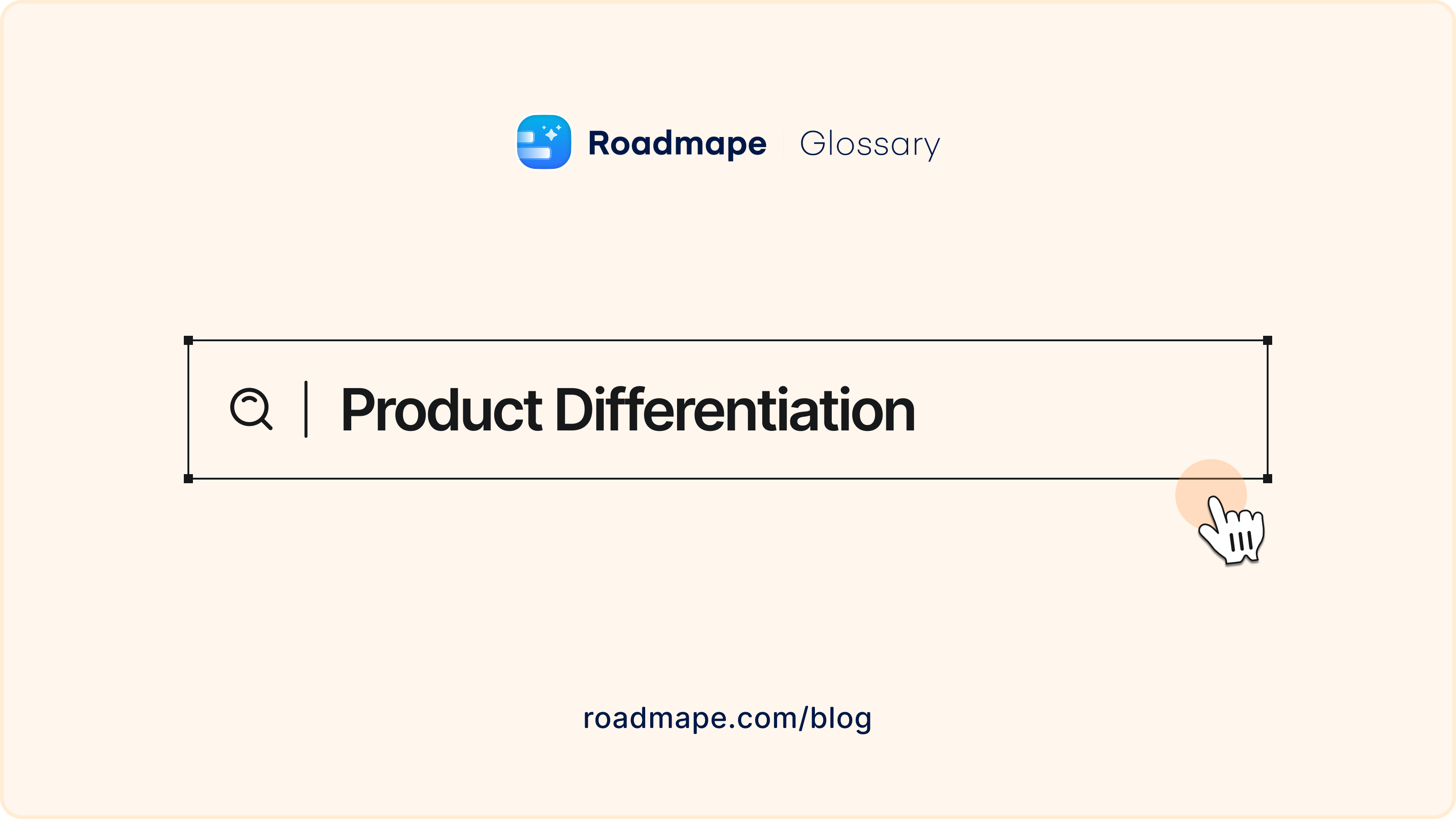What is Product Differentiation? How to Stand Out in Competitive Markets
Explore the strategic importance of product differentiation in competitive markets, strategies, and challenges, to enhance your brand's market position.

TL;DR
Product differentiation is the process of distinguishing a product or service from others in the market. It involves identifying unique features, benefits, or attributes that set a product apart from its competitors.
This strategy is crucial for businesses looking to achieve a competitive advantage, enhance brand loyalty, and justify price differences.
Understanding Product Differentiation
What Makes Your Product Unique? Product differentiation can stem from various aspects such as design, features, performance, or customer service. It is not merely about being different; it's about being distinctly better in a way that matters to customers.
Types of Differentiation
- Product-Based Differentiation: Unique features, superior quality, innovative design, or technological advancements.
- Service-Based Differentiation: Exceptional customer service, installation services, or user-friendly support.
- Relationship Differentiation: Building strong relationships with customers through loyalty programs or personalized experiences.
Importance of Product Differentiation In a competitive market, differentiation is key to standing out. It not only attracts attention but also fosters customer loyalty and provides a clear reason for a purchase decision over competitors.
Strategies for Effective Product Differentiation
Innovate Constantly Innovation is the heart of differentiation. Developing new and improved products or features can significantly set a brand apart from its competitors.
Enhance Quality Improving product quality can make a substantial difference, especially in industries where performance directly correlates with customer satisfaction.
Focus on Customer Experience Enhancing the customer experience at every touchpoint can create a strong emotional connection with the brand, which is often a deciding factor in purchases.
Utilize Branding Strong, consistent branding helps reinforce the unique qualities of a product, making it more memorable and recognizable in the marketplace.
Leverage Technology Using advanced technologies can provide a practical edge, whether through product innovation, customer service improvements, or efficient processes.
Challenges in Product Differentiation
Maintaining Uniqueness As competitors might quickly imitate successful features, maintaining a unique selling proposition requires continuous innovation and adaptation.
Cost Implications Differentiation can often lead to increased costs in research and development, marketing, and production.
Perception Issues There is a risk that differentiation efforts might not be perceived as valuable by customers, which can undermine the effectiveness of the strategy.
Conclusion
Product differentiation is a vital strategy for businesses aiming to establish a competitive edge in their industry.
By focusing on unique features, superior service, or exceptional customer relationships, companies can effectively distinguish their products from competitors and create a loyal customer base.
However, it requires a deep understanding of market needs, continuous innovation, and strategic execution to be successful.
Frequently Asked Questions (FAQ)
Q1: How does product differentiation impact pricing?
Product differentiation can allow a company to charge premium prices if the differentiation creates perceived added value for the customers.
Q2: Can product differentiation lead to increased market share?
Yes, effectively differentiated products can attract more customers, potentially increasing market share.
Q3: What is an example of product differentiation?
Apple’s integration of software and hardware in its product design is a classic example of product differentiation that enhances user experience.
Q4: How important is customer feedback in product differentiation?
Customer feedback is crucial as it provides insights into what features or improvements are most valued by consumers.
Q5: Can a small company successfully implement product differentiation?
Absolutely, small companies can focus on niche markets or specialized products to effectively differentiate themselves from larger competitors.


